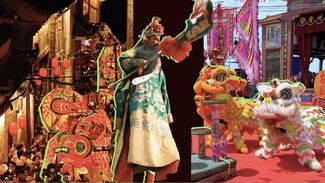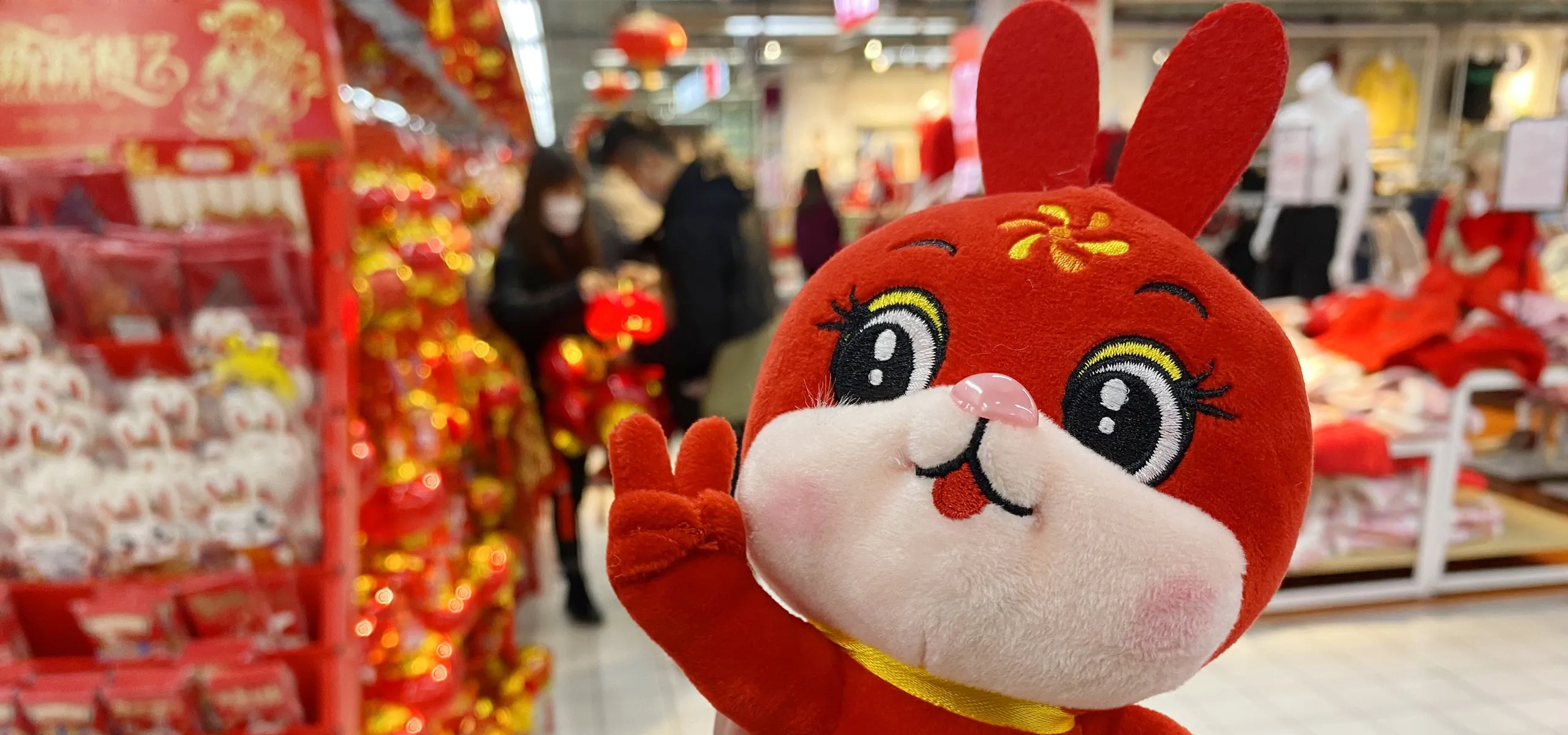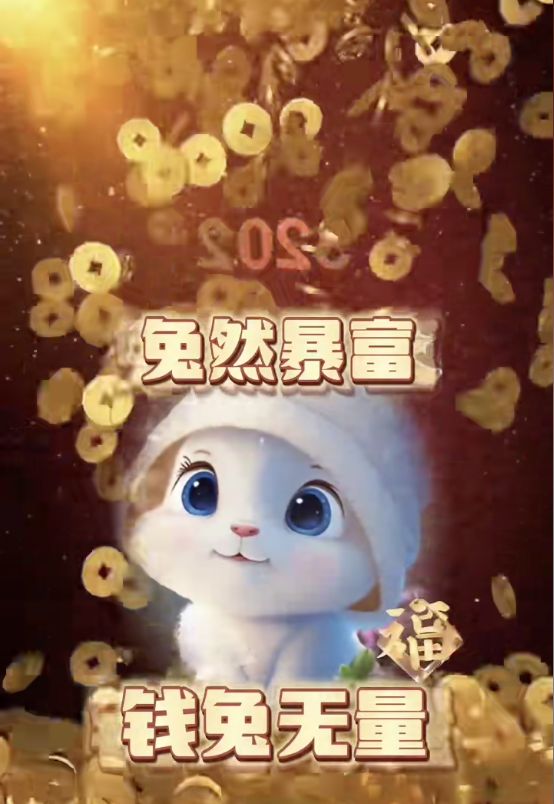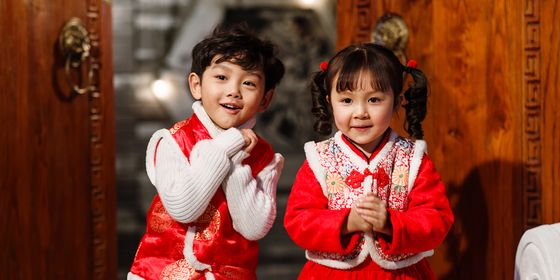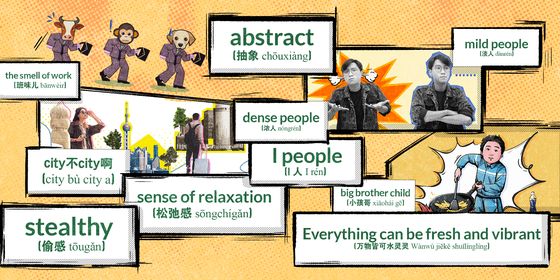How netizens are giving modern makeovers to traditional New Year greetings
The Lunar New Year countdown is always an exciting time in China, but perhaps never more so than during the Year of the Rabbit, with most of the country traveling back to their hometowns to spend the Spring Festival (春节 Chunjie) with their families, the first time for many since the pandemic started.
This means it’s time to brush up on some New Year vocabulary one might have forgotten in the last three years, and learn some new twists netizens have given to this time-honored tradition.
As China’s biggest holiday, the Lunar New Year is a crucial season for sending special greetings and best wishes to everyone in your acquaintance, even people whom you haven’t seen for a long time. With electric communication, “greeting text messages (拜年短信 bàinián duǎnxìn)” have come into fashion, making for the most commonly received copy-pasted messages on WeChat during this period.
Traditional greeting messages always contain the current year’s zodiac, so the rabbit takes center stage this year:
May rabbit feet open the path of wealth for you, may rabbit ears bring you good luck, may the rabbit carry your good fortune on its back, may rabbit fur add to your joy, and rabbit tails swipe auspicious talismans over to you. Wishing you a sweet and joyful life in the Year of the Rabbit!
兔脚为你开财路,兔耳帮你撞鸿运,兔背给你驮福寿,兔毛为你添欢乐,兔尾扫来吉祥符。祝你兔年生活幸福甜蜜蜜。
People also use wordplay to make their auspicious words into a catchy message:
I wish you a boundless and wealthy future in the Year of the Rabbit;
祝你兔年, “钱” “兔” 无量,
Fulfill your aspirations, become suddenly rich;
大展宏“兔”, “兔”然暴富,
Wishing you rapid progress in your career and a promising Year of the Rabbit.
事业 “兔” 飞猛进,兔年大吉。
The above greeting uses many homophones of 兔 (tù, rabbit), in words like future (前途 qiántú, which also uses a homophone of 钱, “money”), aspirations (宏图 hóngtú), sudden (突然 tūrán), and rapid progress (突飞猛进 tūfēi měngjìn). This is common practice every year using each year’s zodiac animal.
Such messages may be handy for people who want to impress their colleagues, clients, or superiors—a New Year greeting may even be their ticket to success at work. For young netizens, though, these traditional greetings can sound very old-fashioned and cliché, so they’ve added fun twists to make their messages to close friends more entertaining.
Some netizens apply “Versailles Literature (凡尔赛文学 Fán’ěrsài Wénxué)” to make joke greetings. This is a style of humblebragging, where one complains about something in a way that actually shows off their wealth, lifestyle, or taste:
I wish for everyone to find a significant other in the new year. Not like my boyfriend, who just gave me the keys to a Lamborghini. What’s the use? Can you eat it?
祝愿大家新年都能收获贴心的对象,不要像我男朋友一样,没事送个兰博基尼车钥匙,这有啥用,钥匙能当饭吃吗?
“Red envelopes (红包),” gifts of cash elders commonly give to children for luck, are a typical tradition of the Lunar New Year. But with “digital red packets” making it easy to transfer money to one’s friends online, they’re not just for kids anymore, and some young adults have turned their New Year’s greetings into cheeky demands for cash:
Apart from a “Happy New Year,” can’t we exchange a bigger red envelope?
我们之间除了新年快乐,就没有大一点儿的红包吗?
Or:
It will be New Year’s Eve soon. Thank you for the red envelope. It hasn’t come yet, but that’s probably because it isn’t time yet. Thank you all the same. Of course you will be sending me one.
很快就是大年三十了,谢谢你的新年红包。虽然还没发,可能是因为时间还没到吧,但还是先谢谢你,总不可能不发吧。
And some New Year’s greetings have evolved into pure comedy:
My wishes for the new year: a thinner body and a plumper wallet. Please don’t mix those two things up again like last year.
新年愿望:人瘦点钱包鼓点,希望别再弄错了,去年就给我整反了。
My mom said it isn’t true that I have nothing to my name. At least I have the audacity to show my face at home.
我妈说我并不是一无所有,起码我还有脸回家。
With the Lunar New Year just around the corner, netizens show their reluctance to say goodbye to the past year: “Ding! You have been removed from the group chat by the Year of the Tiger (叮咚!你已被虎年移出群聊 Dīngdōng! Nǐ yǐbèi Hǔnián yíchū qúnliáo).” Yet every New Year is a time of hope and renewal. After all, for some people, “My wish for this year is to try harder to see if I can realize the wishes I made last year (今年的愿望是,再努努力看能不能把去年许的愿先实现了 Jīnnián de yuànwàng shì, zài nǔnǔlì kàn néng bùnéng bǎ qùnián xǔ de yuàn xiān shíxiànle).”

